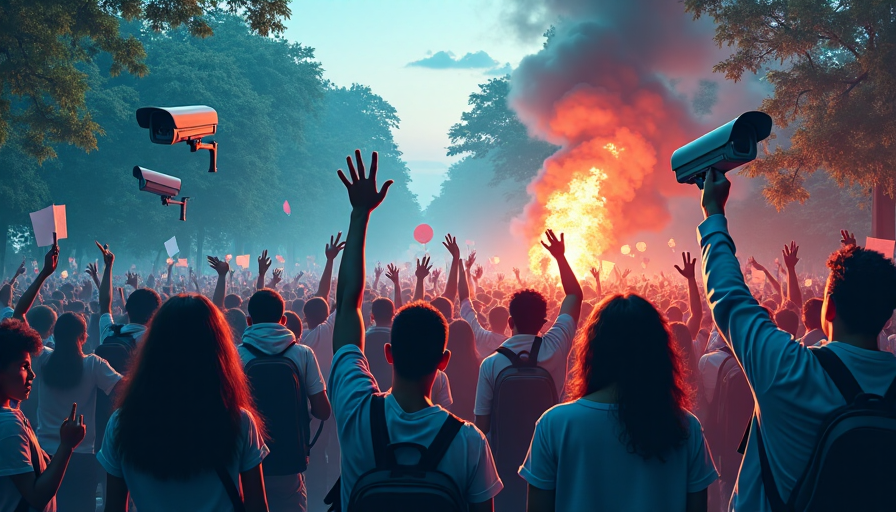
US State Department's New AI Initiative: A Closer Look at Visa Revocation Efforts
The US government is stepping into the forefront of technology with a bold new strategy that leverages artificial intelligence to review the social media activities of tens of thousands of student visa holders. The initiative, referred to as the "Catch and Revoke" effort, aims to identify and revoke visas for foreign students perceived as supporters of Hamas, amid heightened tensions surrounding pro-Palestinian protests.
The Genesis of the Policy
In a move announced by senior State Department officials and reported by Axios, the new policy builds on an executive order signed by former President Donald Trump in January. The order was designed to combat antisemitism on college campuses and the nation at large. It comes at a time when protests, sparked by Israel’s military response to Hamas' October 2023 attack on Israel, have drawn global attention.
How the AI-Powered Review Works
Officials are utilizing advanced AI tools to audit:
- Social Media Accounts: The system will analyze online posts and interactions of student visa holders to flag suspicious behavior.
- News Reporting and Legal Documents: Reviews include monitoring news reports of demonstrations and examining lawsuits brought forward by Jewish students who claim that some foreign nationals are engaging in antisemitic behavior.
This review process is being carried out collaboratively by the State Department, in tandem with the departments of Justice and Homeland Security. While the initiative aims to separate legitimate protest from harmful behavior, it has raised significant concerns regarding freedom of speech and assembly—rights guaranteed by the First Amendment of the US Constitution.
Controversy and Reactions
The policy has sparked intense debate. Critics argue that the approach risks conflating free expression with support for terrorism, noting that many pro-Palestinian demonstrations have explicitly denounced both antisemitism and Hamas. Additionally, some groups, including segments within the Jewish community, actively support the Palestinian cause while condemning hate speech.
Former President Trump has been vocal about his stance on what he termed illegal protests. He has emphasized that agitators might face imprisonment or deportation, and even entertained drastic measures such as permanently expelling American students involved in such protests. These remarks have stoked fears of an erosion in civil liberties at a time when political and social tensions are already high.
The Broader Implications
The initiative is set against a backdrop of significant conflict in the Middle East. Following Hamas' deadly attack on October 7, 2023—which resulted in over 1,200 deaths and the capture of more than 250 hostages—Israel launched a military operation in Gaza, with devastating consequences. The ensuing conflict has displaced countless individuals and ignited accusations of human rights abuses.
As this policy unfolds, it remains to be seen how the use of AI in sensitive areas like visa reviews will impact international education, global protest movements, and the delicate balance between national security and individual freedoms.
The details in this article are based on reports from Axios and other syndicated feeds, with no further commentary from major US government departments at this time.
Note: This publication was rewritten using AI. The content was based on the original source linked above.